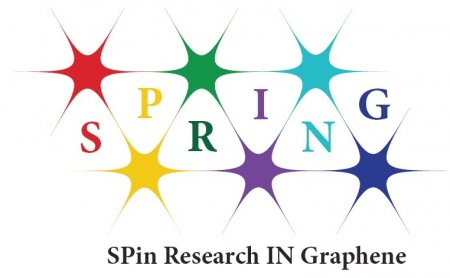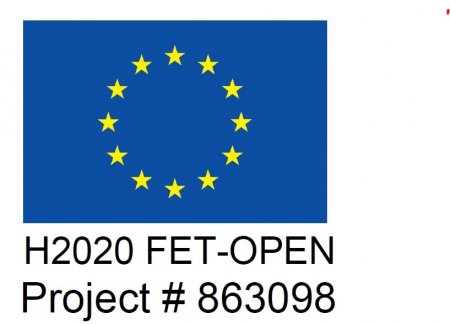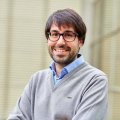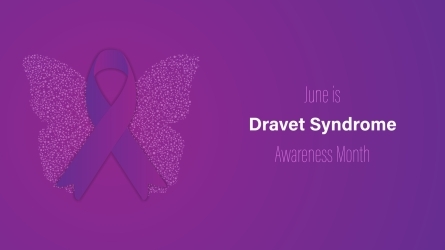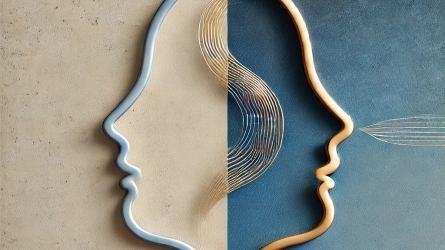
International Workshop on Spin Research in Graphene Nanostructures (SPRING'23)
Description
The SPRING International workshop on spin research in graphene nanostructures (SPRING23) celebrates the achievements of the EU-funded H2020 FET-Open project SPRING.
Magnetism is a property that had been missing from graphene’s impressive list of physical properties – until now. Owing to its unconventional magnetic properties, graphene has been touted as a promising material for spintronics applications. The ambition of the EU-funded SPRING project is to develop an all-graphene platform, where spins can be used for transporting, storing and processing information. Researchers from different disciplines will collaborate to fabricate atomically precise open-shell graphene nanostructures, and manipulate their electron spin and charge, and nuclear spin state.
ORGANIZING COMMITTEE:
Thomas Frederiksen (DIPC, Ikerbasque)
Jose Ignacio Pascual (CIC nanoGUNE, Ikerbasque)
Herre van der Zant (TU Delft)
Leo Gross (IBM Zurich GmbH)
Diego Peña (Universidad de Santiago de Compostela)
Arzhang Ardavan (University of Oxford)
Objectifs
The aim is to test the potential of graphene as a fundamental building block for spintronic devices.
Activité s'adressant à
- Étudiants universitaires
- Professionnels
Directeurs
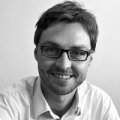
Thomas Frederiksen
Donostia International Physics Center and Ikerbasque
Thomas Frederiksen (TF) obtained his PhD in physics in 2007 from the Technical University of Denmark on the topic of inelastic transport theory for nanoscale systems. In 2008 he was awarded a 5-year Gipuzkoa Fellowship to carry out research at the Donostia International Physics Center (DIPC) and abroad. In 2012 he was appointed Ikerbasque Research Professor at the DIPC where he leads a research group on Nanoelectronics. TF is one of the main developers of the DFT-NEGF code "Inelastica" to perform atomistic simulations of inelastic electron transport and local heating in nanoscale devices.
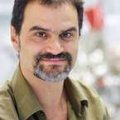
José Ignacio Pascual
CIC nanoGUNE
Nacho Pascual obtained a PhD in Physical Sciences in 1998 from the Universidad Autónoma de Madrid, Department of Condensed Matter Physics. His studies about quantum electronic transport through atoms and molecules using scaning tunnelling microscopy contributed to the settlement of a new research field in nanoelectronics. In 1999, he moved to Berlin, to the Fritz-Haber Institute der Max-Planck Gesselschaft, hosting there a Marie Curie Fellowship to investigate the rules behind single-molecule vibrational spectroscopy, a newly developed method to characterize chemically absorbates with STM. After a short stay in Barcelona, at the Institut de Ciencia de Materiales (ICMAB-CSIC), hosting a Ramon y Cajal Fellowship, he moved back to Berlin, now to the Freie Universität, first (2004) as a Junior Professor and posteriorly (2008) as full Professor. There, he expanded his research in the field of Molecular Physics at Surfaces, dealing with various molecular-scale phenomena, from molecular switching behaviour and charge transfer processes, to magnetism and superconductivity. In 2012, he joined nanoGUNE as Ikerbasque Research Professor and Group Leader of the Nanoimaging group. https://www.nanogune.eu/en/nanogune/people/n
Conférenciers

Guido Burkard Burkard
University of Konstanz
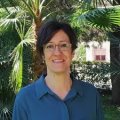
Araceli G. Campaña
University of Granada

Juan Casado Casado

David Ecija Ecija
Imdea Nanoscience

Laëtitia Farinacci

Roman Fasel Hürzeler
Empa, Swiss Federal Laboratories for Materials Science and Technology

Joaquin Fernández Rossier
International Iberian Nanotechnology Laboratory

Dimas Garcia de Oteyza
Nanomaterials and Nanotechnology Research Center

Pavel Jelinek
Institute of Physics of the AS CR
Aurelio Mateo-Alonso obtained his BSc (1999) and MSc (2000) degrees in organic chemistry from Universidad Autónoma de Madrid (Spain). In 2004, he completed his PhD at Queen Mary University of London (UK). Between 2004 and 2009 he was a Postdoctoral Researcher at Università di Trieste (Italy). In 2009 he joined the Freiburg Institute for Advanced Studies (Germany) as a Group Leader. Since 2012 he has been an Ikerbasque Research Professor and Group Leader at POLYMAT and at the University of the Basque Country in San Sebastian (Spain). He has been the recipient of the Young Investigator Prize of Università di Trieste (Italy 2007), the Eugen-Graetz Prize of Universität Freiburg (Germany 2009), the Sigma–Aldrich Young Investigator Prize of the Spanish Royal Chemical Society (Spain 2011), and the Young Investigator Award of the Nanocarbons Division of the Electrochemical Society (USA 2012). In 2016 he received a Consolidator Grant of the European Research Council (ERC).

Igor Roncevic
University of Oxford

Oleg Yazyev

Lisanne Sellies
Universität Regensburg
Tarifs inscription
| Matrícula | jusqu'au 30-06-2023 | jusqu'au 31-08-2023 |
|---|---|---|
| 0 EUR | 0 EUR | |
| 125,00 EUR | 150,00 EUR | |
| 250,00 EUR | 300,00 EUR |
Lieu de l'événement
Gipuzkoa
Gipuzkoa

